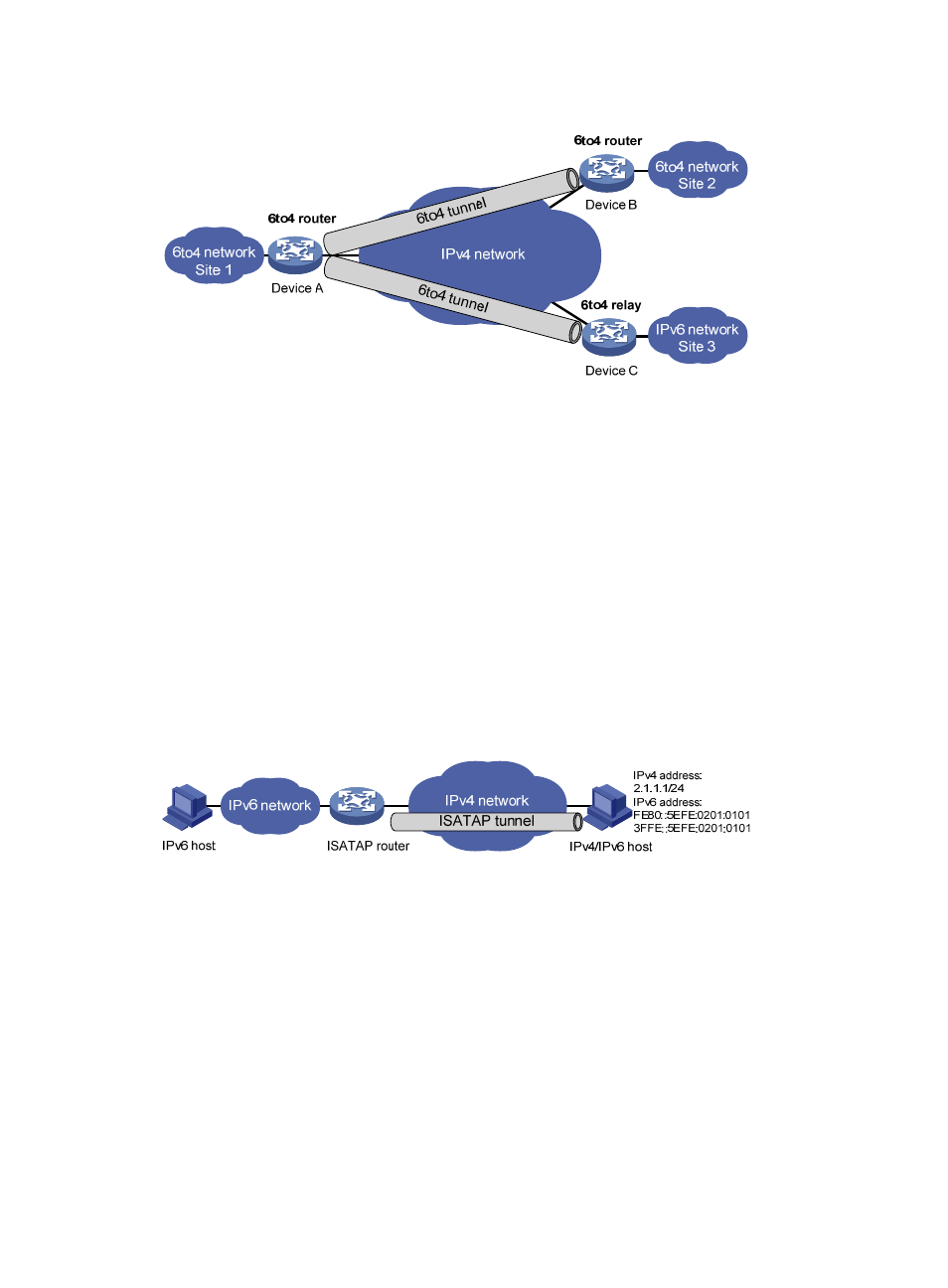Ipv4 over ipv4 tunneling, Introduction – H3C Technologies H3C SecPath F1000-E User Manual
Page 93

81
Figure 65 Principle of 6to4 tunneling and 6to4 relay
•
ISATAP tunneling
With the application of the IPv6 technology, there will be more and more IPv6 hosts in the existing
IPv4 network. The ISATAP tunneling technology provides a satisfactory solution for IPv6
application. An ISATAP tunnel is a point-to-multipoint automatic tunnel. The destination of a tunnel
can automatically be acquired from the embedded IPv4 address in the destination address of an
IPv6 packet.
When an ISATAP tunnel is used, the destination address of an IPv6 packet and the IPv6 address
of a tunnel interface both adopt special ISATAP addresses. The ISATAP address format is
prefix(64bit):0:5EFE:abcd:efgh. The 64-bit prefix is the prefix of a valid IPv6 unicast address, but
abcd:efgh is a 32-bit source IPv4 address in hexadecimal, which might not be globally unique.
Through the embedded IPv4 address, an ISATAP tunnel can be automatically created to transfer
IPv6 packets.
The ISATAP tunnel is mainly used for communication between IPv6 routers or between a host and
an IPv6 router over an IPv4 network.
Figure 66 Principle of ISATAP tunneling
IPv4 over IPv4 tunneling
Introduction
IPv4 over IPv4 tunneling (specified in RFC 1853) is developed for IP data packet encapsulation so that
data can be transferred from one IPv4 network to another IPv4 network.
- H3C SecPath F5000-A5 Firewall H3C SecPath F1000-A-EI H3C SecPath F1000-E-SI H3C SecPath F1000-S-AI H3C SecPath F5000-S Firewall H3C SecPath F5000-C Firewall H3C SecPath F100-C-SI H3C SecPath F1000-C-SI H3C SecPath F100-A-SI H3C SecBlade FW Cards H3C SecBlade FW Enhanced Cards H3C SecPath U200-A U200-M U200-S H3C SecPath U200-CA U200-CM U200-CS
